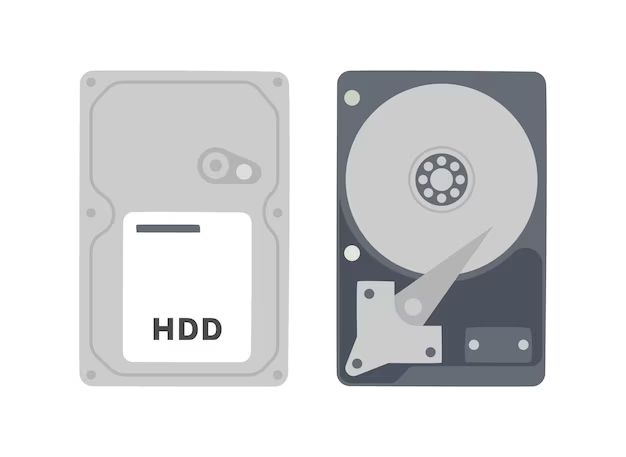Defragmenting hard drives has long been considered an essential maintenance task to improve performance. However, with modern drives and operating systems, defragmentation is less critical. Solid state drives (SSDs) and Linux/macOS systems require little to no defragmentation. Windows still recommends periodic defragmentation for traditional hard disk drives (HDDs), though even this is less vital on newer versions.
Do SSDs need defragmenting?
Solid state drives (SSDs) do not need to be defragmented. SSDs have faster access times and no mechanical parts. Data written to an SSD is spread evenly across the drive by the controller, eliminating the concept of fragmentation. Defragmenting an SSD provides no benefits and can actually shorten its lifespan by causing unnecessary writes.
Do Linux and macOS need defragmenting?
Linux and macOS systems require little to no manual defragmentation. Both operating systems use file systems designed to avoid fragmentation issues. Linux utilizes ext4 and XFS, while macOS uses APFS. These next-generation file systems efficiently allocate data to minimize fragmentation. Both OSes also run automatic optimization routines to further reduce any fragmentation.
Do new Windows versions need defragmenting?
Recent Windows versions require less defragmentation than older ones. Windows 10 and Windows 8 perform automatic “background” defragmentation on traditional hard disk drives (HDDs). This prevents performance loss from excessive fragmentation. Manual defragmentation may provide slight improvements but is not essential with automatic optimizations. Solid state drives still do not need defragmenting on Windows.
When should you defragment a Windows HDD?
Microsoft still recommends periodic manual defragmentation for HDDs on Windows. This further consolidates data and maximizes performance. Defragment at least once every few months, or when drive fragmentation reaches about 10-15%. More frequent defrags provide diminishing returns. Running the defrag tool overnight allows it to completely optimize the drive.
What types of drives need defragmenting?
Only traditional rotational hard disk drives (HDDs) benefit significantly from defragmentation. SSDs do not need defragging on any platform. Nor do Linux or macOS require manual optimization. Modern Windows versions defrag HDDs automatically, but occasional manual runs provide extra improvement. Defragment external HDDs used for storage or backup as well.
Why defragment HDDs but not SSDs?
HDDs and SSDs access data differently, which impacts fragmentation. HDDs use moving heads to read data from platters. Fragmentation forces the heads to physically seek across the drive, hurting performance. SSDs have no moving parts and consistent access times, so fragmented data does not significantly slow them down.
How does defragmentation work?
Defragmentation consolidates fragmented files on a drive by rearranging data. It relocates file pieces that are scattered across the disk so they are contiguous. This optimization process reduces the physical area the HDD heads must move across to access a complete file. On SSDs, data location has no effect on access speed.
What causes drive fragmentation?
Normal system activity and file operations lead to fragmentation over time. Creating, deleting, resizing and moving files leave unused gaps. New data gets written in these gaps, spreading files across the drive. Boot volumes with operating system files often become highly fragmented. External drives used for general storage also build up fragmentation.
When do I know a drive needs defragmenting?
On Windows, run the built-in defrag tool to view current fragmentation levels. If an HDD’s fragmentation is over about 10-15%, a defrag will likely provide noticeable improvements. Monitor the tool’s optimization passes – reduced passes over time indicate lower fragmentation. Check fragmentation around every few months.
How often should defragmentation be done?
Most drives need defragmenting every few months for optimal performance, though frequency depends on usage. Heavily-used systems may benefit from monthly defragmentation. Laptops and secondary drives require less frequent defrags, closer to every 3-6 months. There are also diminishing returns from excessive defragmenting.
Should I defrag my external or secondary drives?
External and secondary hard disk drives used for file storage will gradually fragment like boot drives, and benefit from periodic defragmentation. However, they need less frequent optimization – around every 3-6 months is sufficient in most cases. Backup drives only need defragmenting if initial backups are slow.
Will defragmenting improve gaming performance?
Defragmenting your primary hard drive can provide a small boost to gaming performance on rotating drives. Eliminating fragmentation lets games load assets faster, especially large open-world games. SSDs already enable fast game load times, so defragging provides negligible improvement. Keeping the boot drive optimized remains beneficial regardless.
Does defragging improve computer speed?
Defragmentation can noticeably improve general system performance by speeding up file access on traditional hard drives. Consolidating data allows programs to load faster and files to open more quickly. SSDs already have fast, consistent access times, so defragging does not speed them up. But optimizing an HDD boot drive will provide a performance boost.
Do I need third-party defrag tools?
The built-in disk defragmenter in Windows is usually sufficient, especially on Windows 10/8 with automatic defrag. Third-party tools like Defraggler provide more customizable scheduling and defrag methods. However, they offer minimal additional optimization. Exceptions are drives with extremely heavy fragmentation that the default tool cannot handle.
Conclusion
Defragmentation provides significant performance benefits for traditional hard disk drives. However, many modern drive types and operating systems require little to no manual optimization. Solid state drives never need defragmenting, and Linux/macOS defrag automatically. Windows still recommends periodic defragmentation for HDDs despite automatic background optimization.
